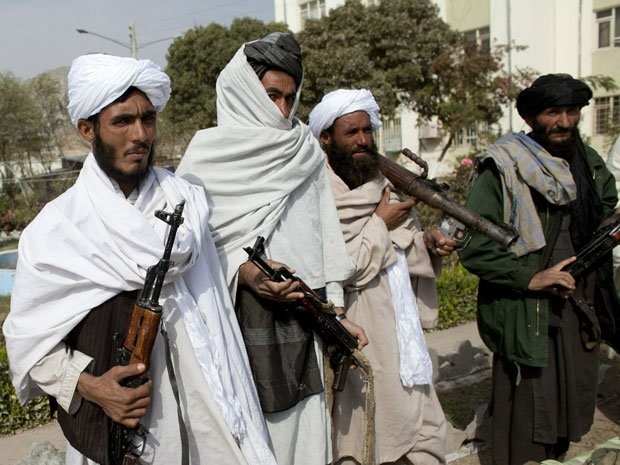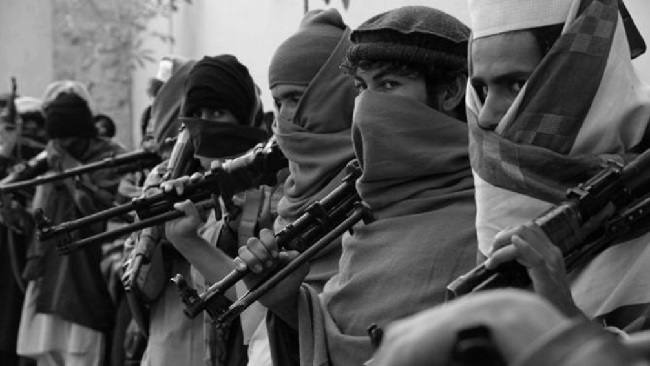Pakistan’s Inter-Services Intelligence [ISI] has brilliantly succeeded in squashing the dissent within the Afghan Taliban over the new leadership of Mullah Akhtar Mansoor. The ISI took all in all less than ten weeks to bring matters under control. The turning point comes with the ‘disclosure’ on Sunday by young Yakoub that his dad Mullah Omar, founder of the Taliban, had actually died from Hepatitis C and that the end came when the cleric was on Afghan soil.
Yakoub’s voice recording will be resonating in the valleys and hills of Afghanistan. This is not a matter of Yakoub divulging a valuable piece of ‘classified’ information. Pashtuns will understand that Yakoub has signaled he has no intentions to challenge Mansoor’s leadership or annoy the ISI. Period.
What the ‘tripartite; deal between Yakoub and Mansoor and the ISI we will never get to know but this development marks the epilogue to the short-lived ‘revolt’ within the Taliban against Mansoor. The Taliban commanders who were in an ugly mood have been either bought over or threatened with dire consequences (most of them have families living in Pakistan) and silenced. They have understood what is good for them (and their kin) and have allowed themselves to be ‘pacified’.
But this is not a solo ISI act. Mansoor also displayed patience, tact and pragmatism in consolidating his leadership. He didn’t let loose violence on his detractors and trusted that other persuasive methods exist. The reports said he even reached out to senior Taliban commanders in the Middle East to lend credibility to his rule. We are able to see through the keyhole that Mansoor actually has the DNA of a typical Pakistani mullah. This cleric who has amassed much personal wealth would be perfectly at ease serving a broad-based government in Kabul some day.
The ISI is not going to put it on YouTube to show what a masterly job it did within ten weeks flat to ensure Mansoor is safely ensconced at the top of the Taliban Shura. It is now up to the civilian side in Islamabad to follow up. The ISI can ensure that Mansoor will depute his boys to the negotiating table, but for the peace talks to resume, Kabul should also show willingness. The national security and foreign affairs advisor Sartaj Aziz has travelled to Kabul to meet President Ashraf Ghani.
But Ghani needs to set his own house in order. The war lobby has been on the ascendancy in Kabul and sleazy war profiteers like Rashid Dostum have sprung into action. They want the gravy train to keep running in the Hindu Kush. Ghani would know that despite the claims to the contrary, Afghan armed forces are not in good shape and war is a non-option. (See an excellent write-up by Charles Knight in Huff Post, Afghan Army Now Ready … to Lose to the Taliban.)
To compound matters, Taliban are not easing the pressure on Ghani. Attacks on the government assets and personnel continue relentlessly. One way of looking at it is that the Taliban too have no alternative the display of power is necessary to restore the previous dominant status, to shore up support base from erosion at the hands of the Islamic State and to pressure the government to make concessions when peace talks resume. Thus, the Ghazni jailbreak has not only embarrassed Kabul government but also was an impressive display of power by the Taliban. Again, Taliban’s suicide bombers keep targeting Kabul. And all the time, Taliban keep the Afghan army on its toes, engaging it in a war of attrition.
The US’ priority will be to resume the peace talks and bring about an end to the violence. Interestingly, the US is no longer pressing for the Pakistani military crackdown on the Haqqani Network (which was, of course, an unrealistic demand to begin with.) President Barack Obama is due to take a final decision in the coming month or two regarding the American troop level to be maintained in Afghanistan beyond 2016.
Two top American commanders visited Rawalpindi in the recent weeks chief of US Central Command Gen. Lloyd Austin and the US and NATO commander in Afghanistan Gen John Campbell. The latter was accompanied by the acting American Special Representative for Afghanistan and Pakistan Jarrett Blanc, who is the point person for the reconciliation process in Afghanistan. Campbell and Blanc discussed the resumption of peace talks with the Pakistani army chief Gen. Raheel Sharif, underscoring the faith US places in the latter’s capacity to kick start the Afghan peace talks.
Most certainly, Prime Minister Nawaz Sharif also would like to see the peace talks resume before his visit to the White House in Washington in October. Aziz has expressed optimism that the talks may resume shortly.
Without doubt, Afghanistan will figure in the agenda of talks between Obama and Chinese President Xi Jinping who is reaching Washington on September 25 on his first state visit to the US. Significantly, Meng Jianzhu, member of the Chinese Communist Party’s politburo in charge of state security, visited Washington as Xi’s special envoy last week in the immediate run-up to the president’s state visit. No doubt, Xi’s choice of Meng as his special envoy is hugely significant.
While cyber security hit the headlines as a focal point of Meng’s talks with top US officials, it is entirely conceivable that his four-day visit left ample time for him to discuss regional security issues such as the threat posed by the Islamic State. Meng handles the security issues stemming from the Afghan problem in relation to the terrorist threat posed to China’s security.
By a curious coincidence, hot on the heels of Meng’s talks in the US on security cooperation, Xinhua news agency carried a commentary with Beijing dateline proposing that Xi’s forthcoming US visit “will offer a golden opportunity” for the two countries “to see what they could do together” to harmonise the US’ New Silk Road Initiative and China’s Belt and Road initiatives in Afghanistan and Central Asia. The commentary noted,
There is much room as well as favorable environment along the route for possible cooperation between China and the United States…. Experts suggested Beijing and Washington start concrete talks in this respect, working out ways to cooperate in infrastructure construction, facilitate investment and remove trade barriers, so as to unleash the potential for regional development.
When the Chinese initiatives and the U.S. plan meet along the ancient Silk Road, it is not a crash but a chemical reaction that generates a great number of merits benefiting everyone involved. Sino-U.S. cooperation in a third-party region establishes a fresh front for the development of a new type of major-country relations between China and the United States.
Possible China-U.S. cooperation on the Silk Road is also expected to meet with challenges besides the die-hard Cold War mentality and the difference of Chinese and U.S. ideologies, experts said.
Several countries along the route, including Pakistan and Afghanistan, are still plagued by conflicts, separatist movements and political instability. These factors would pose threats to personnel safety, infrastructure construction as well as future investment. China and the United States should enhance cooperation not only in the field of economy, but also in restoring and maintaining peace and stability in the region. (Xinhua).
In a nutshell, the Xinhua commentary signaled to the American side ahead of Xi’s forthcoming visit that Beijing does not have a zero sum mindset vis-à-vis the US’ strategies in AfPak and Central Asia. Of course, China and the US have been represented as observers in the previous round of Afghan peace talks.
Any offer by Xi to harmonize China’s approaches to the Afghan problem with President Obama’s thinking so as to work together “in restoring and maintaining peace and stability in the region” cannot but impress the White House.
We may expect a coordinated US-China-Pakistani effort in the days ahead to put the Afghan peace talks back on track. In fact, the three key regional powers neighboring are on board Iran in particular. The New York Times disclosed in a weekend report,
There are also indications that the contacts between the two countries that accompanied the nuclear negotiations have begun to produce more areas of limited collaboration” in Afghanistan… Afghanistan may be the place where there is the clearest alignment of interests and the potential for collaboration” between the US and Iran.
All in all, it is possible to say that the dust is settling down over Mullah Omar’s death. Life moves on. Of course, a healed memory is not a deleted memory but it is within human ingenuity to change the memory of Mullah Omar and assume a grim energy and resolute courage to move on to better things. The death of the father happens only once in life, but Yakoub has shown the way


